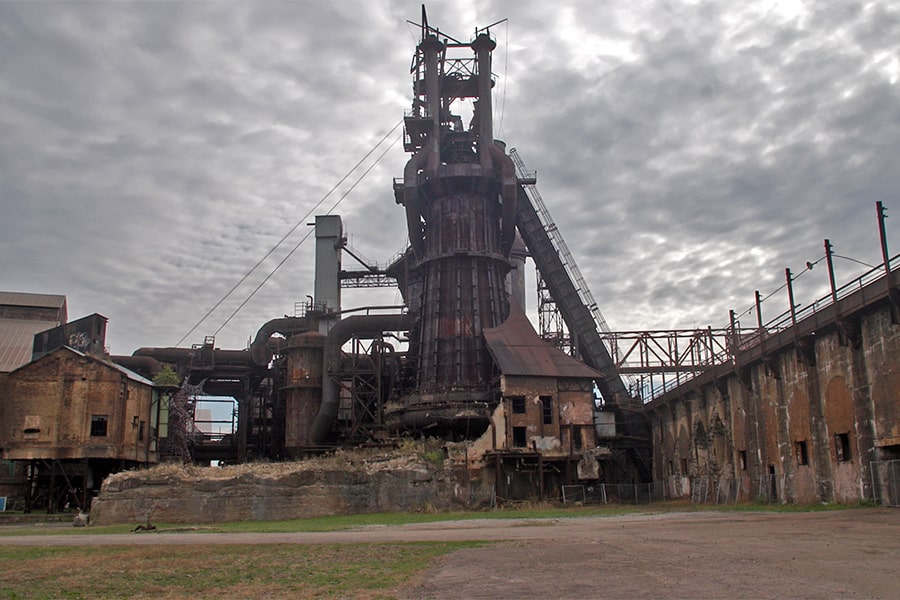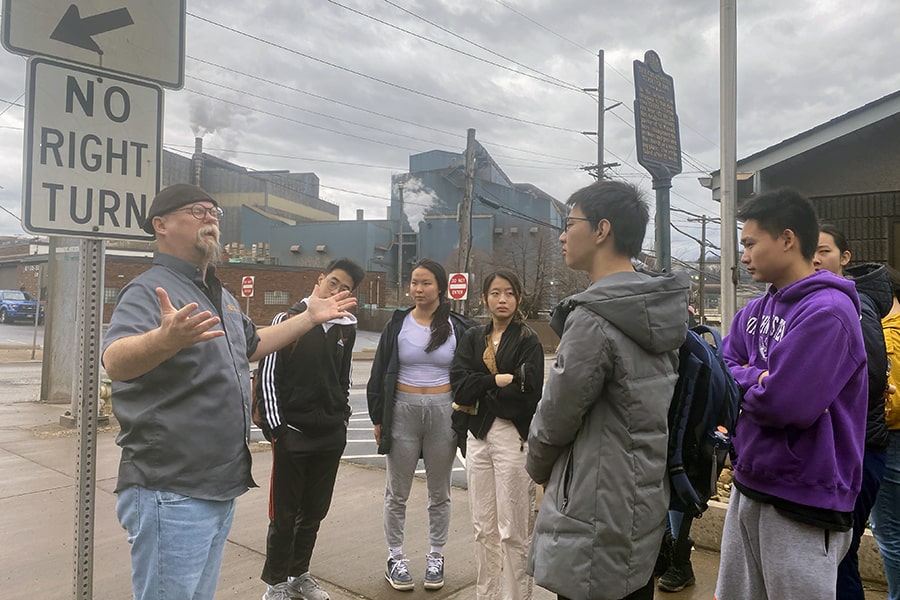Grand Challenge First-Year Seminar Student Experiences - You Make Me Sick: Causes and Consequences of Health Disparities
Course Number: 66-137
Field Trip
A driving tour of Pittsburgh was used to highlight the discrepancies among people and the neighborhoods in the Pittsburgh area and to help illustrate how factors such as infrastructure, occupation, and housing can play a role in health. Students were able to hear about the history of Pittsburgh and how different social groups lived at the height of the Steel industry’s reign. Also highlighted was the ethnic diversity of people who settled in the Pittsburgh area. Students were able to sample some traditional Pittsburgh foods which we had previously discussed in terms of their ethnic origin and nutritional value.
"The field trip was the single biggest eye-opening experience I had in the class."
"Having the opportunity to explore the city, travel up the incline, and try Pittsburgh food tied in a sense of what current day Pittsburgh looks–and tastes–like after traveling through its past.
I felt that the field trip really tied together different aspects of topics we had discussed in class and allowed us to more cohesively understand history’s implications on today." –Kel-Li Chen
"When I first heard about going on the field trip, I was a bit skeptical of how it might be helpful toward our understanding of health disparities… I was proven very wrong.
It was a refreshing experience to be able to leave the classroom and see directly with my own eyes how the topics we have covered such as working and living conditions, segregation, etc could actually affect our health." –Brendon Chung
"It is one thing to sit in a classroom and discuss the impacts of steel mills on the health of those who lived near and worked there. Being able to see the mills close up, smell a fraction of what the smell would have been when there were many fully functional, and seeing the state of the residences nearby brings on a completely new perspective.
Being able to witness the current state of the city with a historical perspective is something that is going to stick with me." –Kajal Mehta
"While I was aware of the struggles workers faced during that time, being able to go around Pittsburgh and be able to better envision the lives the workers lead was informative. Problems such as how workers living where they worked lead to worse health was better to envision standing along the riverbank where the steel factories were.
The overall experience of being able to go through the variety of neighborhoods in Pittsburgh was also informative, as I could see the stark differences in neighborhood affluence—something I otherwise might not observe if not for this field trip." –Emily Jiang
Group Projects
Students were tasked with creating a solution to help solve food disparities in the U.S. Working in teams, students created proposals that addressed the problem of food availability. As a group, they selected their own aspects of the problem to study. Some teams focused on food waste, while others focused on specific populations that were food insecure. Projects had to be backed by research and were judged based on their feasibility and creativity.





